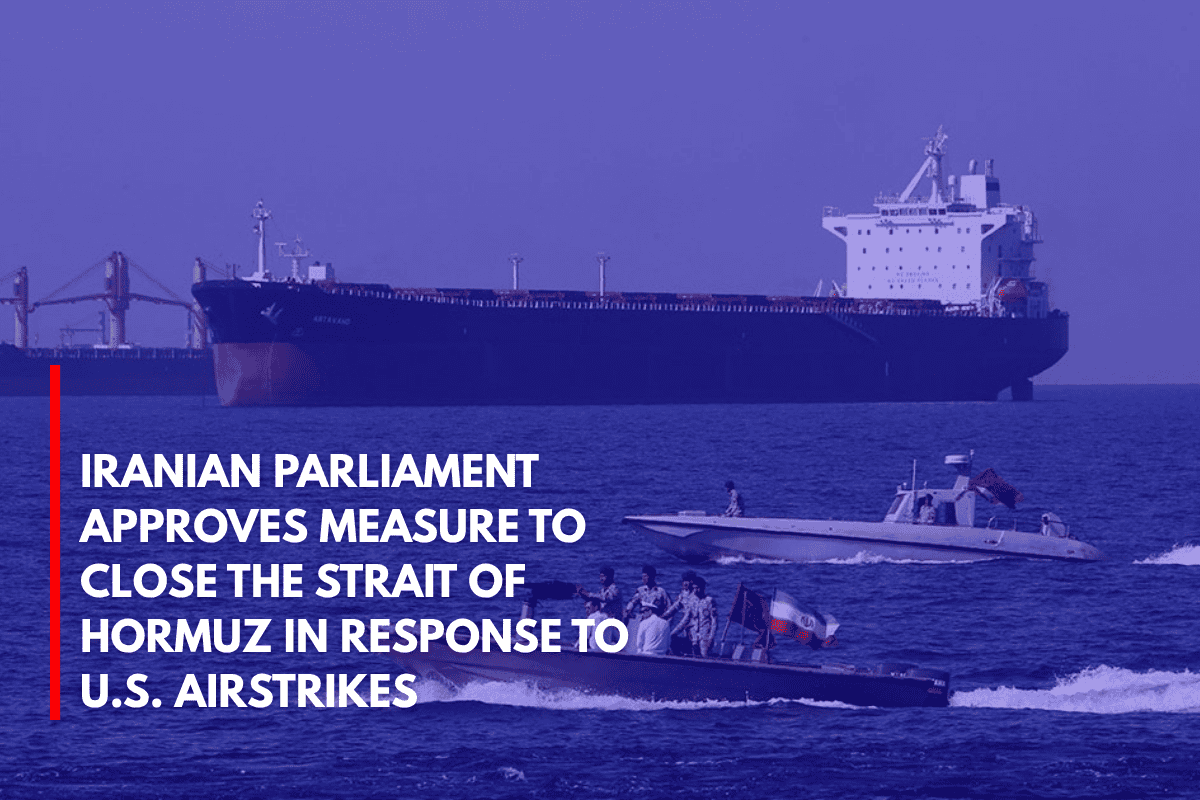On Sunday, the Iranian Parliament passed a measure to **close the Strait of Hormuz, a key waterway that connects the Persian Gulf with the Gulf of Oman, in retaliation for the U.S. airstrikes on Iran’s nuclear facilities.
The strait is a critical global oil chokepoint, and any disruption could have significant economic consequences worldwide, especially for the U.S.
Strait of Hormuz: A Vital Global Trade Route
The Strait of Hormuz is one of the world’s busiest and most important shipping routes. It has the capacity to handle the largest crude oil tankers, and it serves as the passage for about 20 million barrels of oil per day, which represents about 20% of global oil consumption.
In 2024, over 80% of the crude oil and natural gas passing through the strait was headed to Asian markets, with China, India, Japan, and South Korea being the largest recipients. A closure of this strategic route would disrupt global oil supply chains and have widespread economic effects.
U.S. and Global Economic Impact
Secretary of State Marco Rubio warned that closing the Strait of Hormuz would be a “suicidal” move for Iran. He urged China, one of Iran’s largest oil customers, to persuade the country against taking such drastic action, emphasizing how crucial the strait is for China’s energy needs.
While the U.S. has reduced its oil imports from the Persian Gulf in recent years, it still imports around 532,000 barrels per day, according to the U.S. Energy Information Administration (EIA).
The disruption of this key route could lead to higher oil prices, not just for U.S. businesses and consumers but also globally, since oil is traded on international markets. Experts estimate that if the strait were closed, oil prices could jump from $73 per barrel to as high as $120 per barrel.
Impact on Global Oil Prices
The Israel-Iran conflict and the U.S. strikes have already contributed to rising oil prices, and a potential closure of the Strait of Hormuz would likely drive prices even higher.
Ramanan Krishnamoorti, a petroleum engineering professor at the University of Houston, warned that any slowdown in the strait’s oil flow would result in a “massive increase in the price of oil,” with significant impacts on the U.S. economy.
Iran’s Options and Potential Consequences
Although Iran’s Supreme National Security Council has not yet made a final decision, some experts are skeptical that Iran will go through with the closure.
They argue that such an action would provoke an immediate military response from the U.S., leading to even further economic damage for Iran. Additionally, blocking the Strait of Hormuz could be self-defeating for Iran, as it would harm its own oil market and limit its ability to export.











Leave a Reply